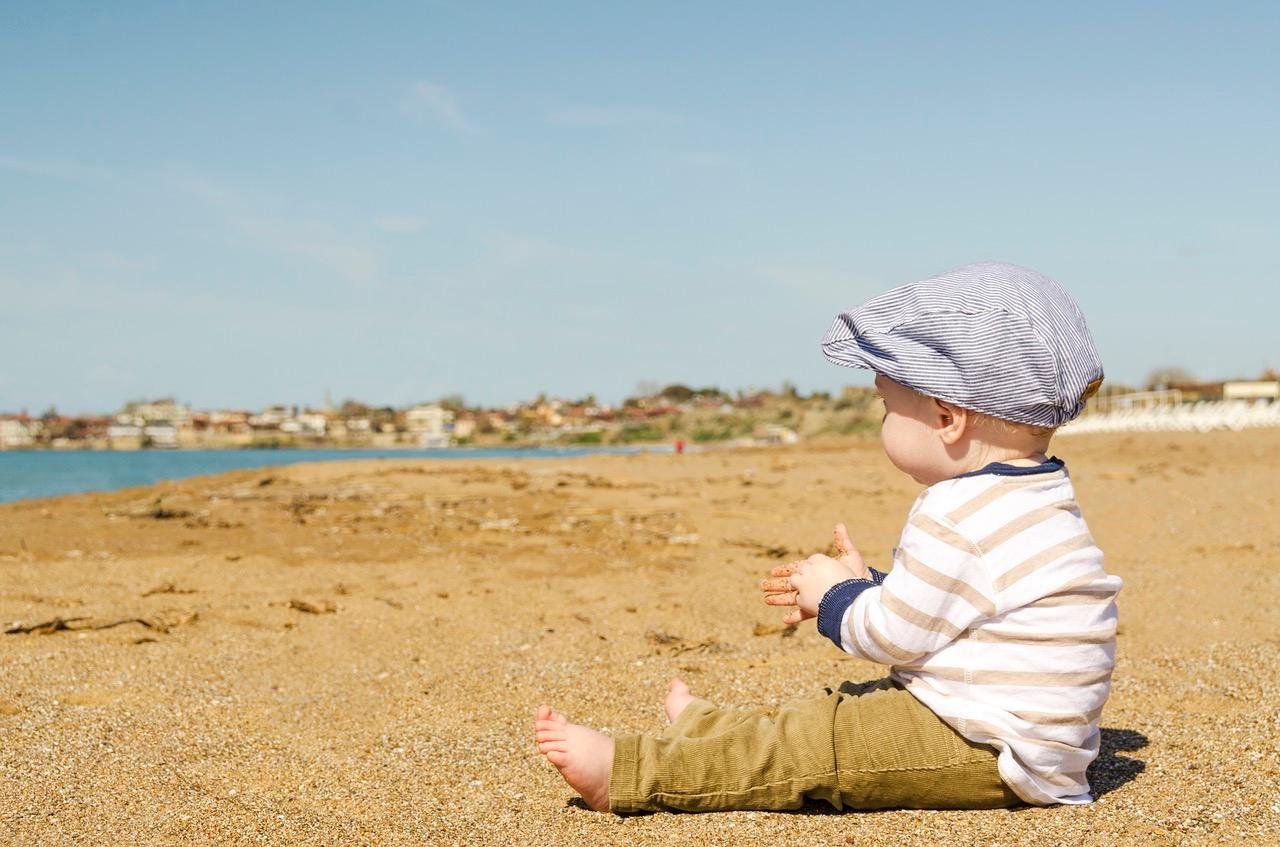5 Ways To Protect Your Family From The Sun Without Harsh Chemicals
Summer is around the corner, so it's important to keep our families protected from dangerous rays. However, many sunscreens contain harsh chemicals that might make parents pause. Here are some healthy ways to protect our skin in the sun.
Updated May 24 2019, 6:50 a.m. ET
Summer is just around the corner, so it's important to keep kids (and ourselves!) protected from the sun. In fact, as we all know, it's important to take care of our skin no matter the season or how much time you spend outside directly. Even if you aren't spending the day at the beach, you can still get quite the sunburn or other skin damage, making it reasonable for parents to want to their slather their kids in sunscreen.
However, many traditional brands of sunscreen contain harsh chemicals which research has linked to endocrine-disruption, and fragrances which can cause skin irritation. Luckily, other options do exist. Here are five healthy ways to stay protected from the sun. And remember: Always consult your doctor when it comes to your health to determine what is best for you and your family.
1. Make your own sunscreen at home
Parabens, retionol, fragrances and oxybenzone are just some of the ingredients in traditional sunscreens that can make parents wary. It's enough to make you wish that you could just make a better lotion yourself. Well, you can! The internet is full of recipes for all-natural sunscreens. Most call for ingredients that are easy to find and inexpensive.
One popular recipe calls for just five ingredients. And don't be intimidated by the recipe's inclusion of zinc-oxide. It is a natural ingredient used to treat everything from burns to hemorrhoids, and can also protect against UV damage from the sun. It can be found online and in certain drug stores for a reasonable price. If you'd like your DIY sunscreen to smell more like a traditional lotion, just add citrus or essential oils to make it smell naturally great. Adding aloe can also create a cool, comforting feel.
2. Invest in sun-protective clothing
As the days grow hotter, we typically wear less and less clothing to regulate heat. But that may be counterproductive. Few things protect us from harmful UV rays better than clothing. And wearing more in the spring and summer doesn't have to mean sweating bullets.
Wear long-sleeved shirts made from light, breathable organic cotton. Consider wearing longer shorts, such as board shorts, rather than high-cut ones. Long skirts and lightweight maxi dresses can offer cool sun protection for moms and daughters. For the water, consider long-sleeved swim shirts and waterproof board shorts for boys and men. Long-sleeved bathing suits (sometimes called "surf suits") can be found in girl's and women's sizes. Paired with women's board shorts or swim shorts, it's possible to look cute and stay protected!
We're always thinking about our skin's exposure to the sun, but remember--UV rays are harmful to our eyes as well! Too much sun can cause vision problems in children, and can speed up the development of cataracts in adults. Sunglasses are essential for every member of the family. If you or your kids wear prescription eyeglasses, it may be worth investing in prescription sunglasses or transitional lenses for use during spring and summer.
3. Eat food with sun-protective properties
Yes, such foods really do exist! Carotenoids, natural plant pigments found in many fruits and vegetables, can help protect eyes and skin from sun damage. According to research, they have also been shown to possess anti-carcinogenic properties. This is good news for families hoping to protect kids from the dangers of UV rays, including skin cancer.
Color is a good indicator that certain fruits and veggies possess carotenoids. Orange plant foods, such as carrots, apricots, and yams, contain high levels. But so do dark leafy greens, such as kale and spinach. One of the best sources of carotenoids is egg--particularly egg yolk. These easy-to-find foods are a great way to give your family a natural boost of sun protection.
4. Wear hats on a regular basis
The most essential and effective clothing item for blocking sun? Hats! Wide-brimmed "sun hats" (sometimes called "gardening hats") cast shade over the entire upper-body. Since areas like the forehead, nose, neck and shoulders are some of the most likely to burn from sun exposure, this makes these hats a must. Many styles of these hats are considered women-only items, but fear not. Guy-approved versions (usually referred to as "safari hats") exist in abundance, for both men and boys.
5. Use the sun to protect yourself from UVs
It may seem counter-intuitive, but the sun itself can actually help protect your family from the damaging effects of sunlight. How is that possible? Well, our skin is designed to naturally releases large quantities of vitamin D when exposed to UVB rays from sunlight. Vitamin D has been shown to help protect skin from cellular damage. That includes cellular damage from the sun itself!
The trick is to not over-expose skin to direct sunlight. 15 minutes of exposure is all one needs to ramp-up vitamin D production. It is also worth noting that we possess melanin for a reason. These pigments rise to the surface of our skin to create tans when we are exposed to UV. They form a naturally sun-protective barrier to help protect us.
Whether your family is planning to camp, hike, swim or surf this spring and summer, remember that sunlight doesn't have to be our enemy. Using natural methods, it's possible to protect ourselves from damaging UV in a healthy ways, and enjoy the sun's bountiful benefits at the same time!


